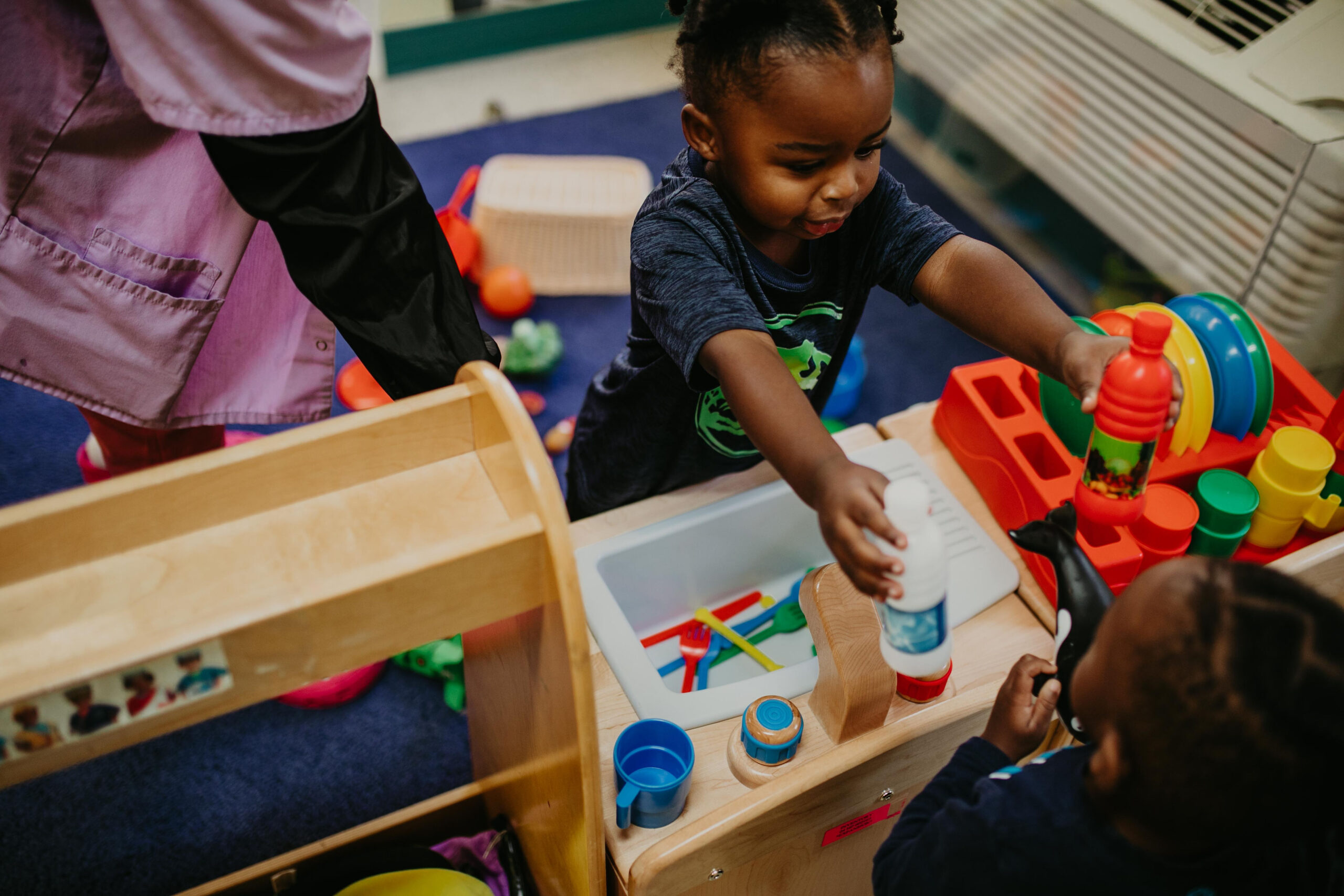Last weekend my family and I went to visit some friends, a couple we know well and their four children (ages 7, 5, 3, and 1). Add my 9-year-old and one-year old into the mix and us parents were solidly outnumbered. A skirmish over a toy broke out between our youngest children. As my friend and I were attempting to broker the toddler equivalent of the Geneva Summit, I said, “It’s ok. They’re not supposed to share willingly at this age. They’ll learn.”
I haven’t always been so sanguine on the subject of toddler sharing. I remember thinking that my daughter might be a sociopath when she first started preschool at age 3. She would take a toy from a classmate, seemingly oblivious to their howls of anguish as she began to play. I was frustrated and concerned, so I tackled the problem the way I approach most issues — I researched. I found, of course, that she wasn’t a terrible person, just a normal kid who needed a lot of guidance. In my reading I came across a quote from Nicholas Day, author of Baby Meets World, that gave me a lot of comfort when I read it and helped me to learn to lighten up on the little ones: “When we scold toddlers for not sharing their toys, and then think of them as antisocial monsters, we’re grading them as harshly as possibly.” Studies show that toddlers are good with cooperation and helping behaviors, but true altruism, such as required to give a desired toy away willingly to another, takes time.
Developmentally, before the age of about 3, kids have a lot of factors working against being good at sharing:
Lack of awareness for others | Most toddlers simply haven’t come to understand that they are not the center of the universe, and for many of them, why would they? Especially as infants, life in most households does revolve around them.
Inability to recognize emotional responses | Knowing that tears means unhappiness is not an innate piece of knowledge. Identifying the emotional states of others is a skill that must be developed over time.
Little impulse control | Small children have such poor impulse control that they may repeat the same action that you just told them to stop doing. They aren’t trying to be naughty, they’re just wired that way.
You can help your children to learn to share by demonstrating sharing yourself when playing with them, and recognizing and encouraging good sharing when you see it happening. When children are playing together, try art or outdoor activities that don’t require as much sharing. For more tips on teaching sharing take a look at what the experts at Zero to Three and Scholastic have to say.
Raising children with grace and courtesy is never easy, but it’s important work. Be patient, and remember: some of these lessons take a lifetime to master.



This is awesome- thank you! I wish I had known this with my 1st child. With your 1st, you think every negative behavior is an indication your child is going to be a major menace to society as an adult. After actually watching that child grow into himself, though, you realize children don’t need to have these behaviors berated out of them– they just need an understanding, loving parent with a LOT of patience! Thank you so much for sharing this with us!!